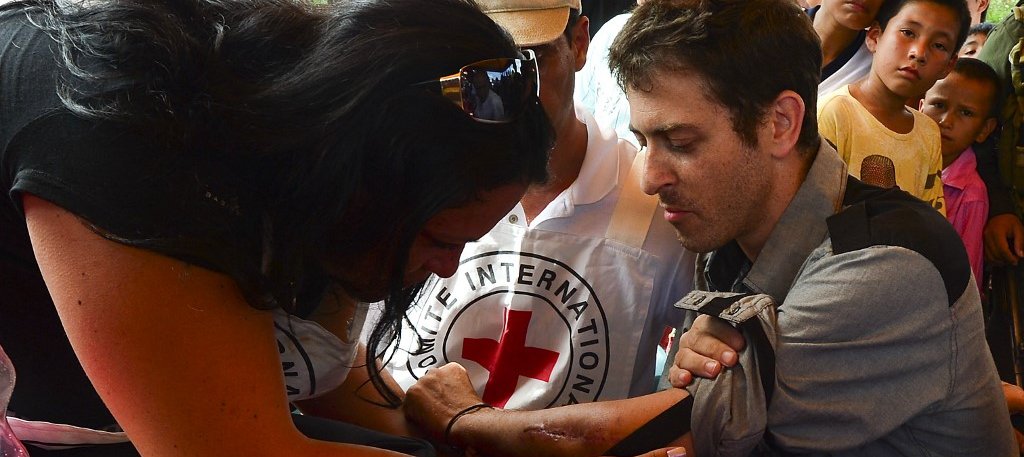The International Committee of the Red Cross (ICRC) is an impartial, neutral and independent organization whose exclusively humanitarian mission is to protect the lives and dignity of victims of war and internal violence and to provide them with assistance. It also seeks to prevent suffering by promoting and strengthening humanitarian law and universal humanitarian principles.
Under international humanitarian law, journalists enjoy the protection granted to all civilians in armed conflicts so long as they take no part in the hostilities (see Article 79 of Additional Protocol I, 1977). Accredited war correspondents have extra protection. In armed conflicts, journalists who accompany armed forces but do not form part of them are considered to be war correspondents, provided they have permission from the troops they are accompanying. Authorised war correspondents who fall into the hands of enemy forces enjoy the status of prisoners of war and as such are protected by the 1949 Third Geneva Convention on the treatment of prisoners of war. Before falling into enemy hands, like all other journalists they enjoy the protection that applies to all civilians.
In some cases, the ICRC may give specific help to journalists:
The ICRC hotline (+41 79 217 32 85) set up in 1985, is for the use of relatives and friends of a threatened journalist. The journalist’s family, employer or professional organisation may ask the ICRC to intervene. The person making the call should provide as much information as possible about the case.
The primary purpose of the hotline is to enable the ICRC to take prompt and effective action, whenever possible, when journalists or their crew are arrested, captured, detained, reported missing, wounded or killed in areas where the ICRC is conducting humanitarian activities. For example, the ICRC can seek confirmation of a reported arrest or capture, and obtain access to detained journalists. Or it may be able to provide information to next of kin and employers or professional associations on the whereabouts of a sought-after journalist whenever such information can be obtained. In some cases, the ICRC can help family members restore or maintain contact with a detained journalist, or it can help evacuate wounded journalists. In worst-case scenarios, it may be able to recover or transfer mortal remains.
The ICRC can only act in places where it already has staff. It will not demand the release of a detained journalist or otherwise advocate for freedom of expression or the right to information, as this lies beyond its mandate. The purpose of the ICRC’s visits to detained journalists is purely humanitarian. The ICRC assesses the conditions in which detainees are being held, and asks the authorities to improve them if necessary. It may open a dialogue with authorities in order to ensure that applicable procedural and judicial guarantees have been respected. It also provides detainees with humanitarian assistance where needed.
The ICRC deals with hotline cases in a confidential manner and expects in return that those requesting assistance will treat the information given to them with the same discretion.
For more information call +41 22 730 34 43 or contact press@icrc.org
.

